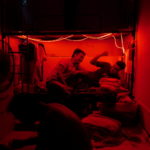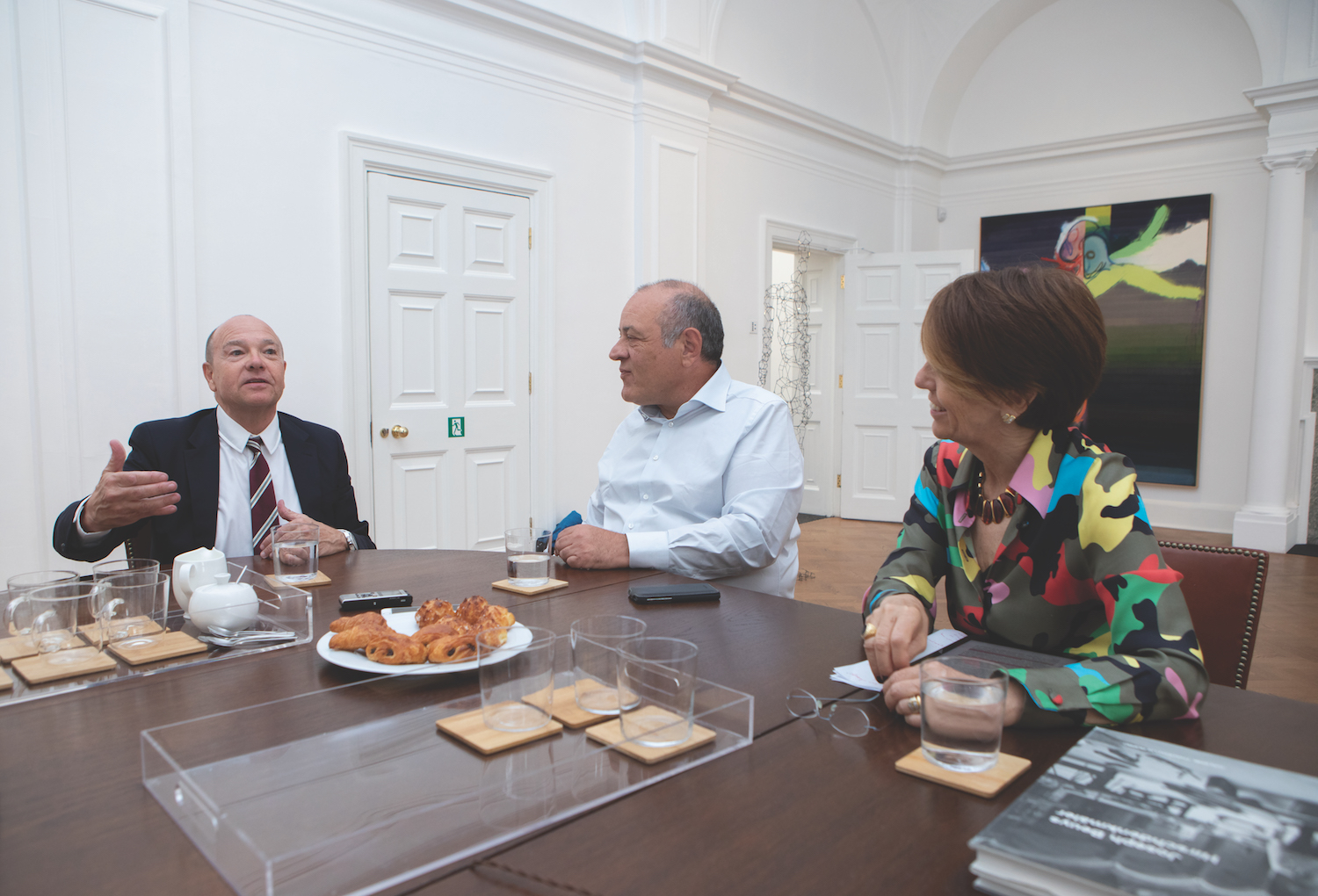Palabrarma (obreros palabreando)
1977 - Drawing & Print (Drawing & Print)
21.59 x 27.94 cm
Cecilia Vicuña
Palabrarma (obreros palabreando) by Cecilia Vicuña is a series of works in which the artist blends poetry, political commentary and graphic design. The title itself is a portmanteau that unites the words palabra (word) and arma (weapon) that speaks literally of the power of words through their poetic potential. A poet herself, Vicuña developed a long series of palabrarmas on diverse media that were often used as slogans in political demonstrations. They also operate as a type of concrete poetry, as much as drawings/paintings in and of themselves. Palabrarma (obreros palabreando) depicts the work palabrarma as being welded by metal workers. The title in parenthesis “workers wording” refers not only to the workers talking to each other, and thus using their words to create personal and most likely political content, but at the same time crafting the word palabrarma itself with what could be sheets of metal. This kind of visual wordplay is characteristic of Vicuña’s work and merges her practice with words and images, as much as her political convictions and participation in activism. Despite the apparently simple nature of the work, it is representative of the complex and multidisciplinary nature of Vicuña’s work.
Cecilia Vicuña integrates practices of poetry, performance, Conceptualism, and textile craft in response to pressing concerns of the modern world, including ecological destruction, human rights, and cultural homogenization. Born and raised in Santiago, she was exiled to London in the early 1970s, after the violent military coup against President Salvador Allende. This sense of impermanence, and a desire to preserve and pay tribute to the indigenous history and culture of Chile, have characterized her work throughout her career.
Colors:
Related works sharing similar palette
» see more
Related artist(s) to: Cecilia Vicuña » Azzedine Meddour, » Really Useful Knowledge, » Runo Lagomarsino, » Sanja Iveković, » Victoria Lomasko, » Adelita Husni-Bey, » Allianz Kulturstiftung, » Anton Kannemeyer, » Arab World, » Buenos Aires
» see more

© » KADIST
Runo Lagomarsino
2020On Fire by Runo Lagomarsino comprises twenty pieces of parchment, each of which has had the contours and map of Brazil burned in stages...

© » KADIST
Adelita Husni-Bey
2015After the Finish Line is a recent film by Adelita Husni-Bey produced for the exhibition Movement Break at Kadist-SF in 2015...

© » KADIST
Adelita Husni-Bey
2011Postcards from the Desert Island is a remake of a 50s educational film Holiday from the rules in which four children interact with an omniscient narrator who teleports them to a tropical island where there are no rules...

© » KADIST
Runo Lagomarsino
2020Yo también soy humo (I am also smoke) is a 16mm film that has been digitized to video...
Related works found in the same semantic group
» see more

© » KADIST
Adrian Melis Sosa
2008In Cuba, due to the lack of materials, workers of state-owned construction companies must remain at work without doing anything, waiting for the end of the working day...

© » ARTS EQUATOR
Alternate Realities Thinking and Talking about Arts and Culture in Southeast Asia Articles Looi Wan Ping, Tiger Tiger Pictures January 16, 2020 By Poh Yong Han (1,279 words, 7-minute read) I Dream of Singapore follows an injured Bangladeshi migrant worker, Feroz, who is temporarily residing at a Transient Workers Count Too (TWC2) shelter, Dayspace, as he waits for his case to be sorted out so he can make his compensation claims...

© » KADIST
Nagendra Gurung
2005Chalis Katesi Ramaula is a series of 240 prints capturing Nagendra Gurung’s life, work, and colleagues from the construction sites where he has worked in Dubai and Saudi Arabia...





